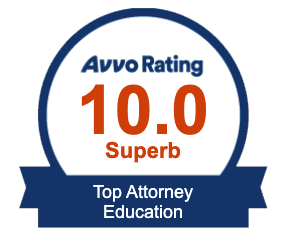Last post, I discussed a few of the drawbacks of the current parental rights form used by most school systems in Georgia. You, of course, remember the tiny print and legalese contained in a five or six page brochure. You take out your reading glasses to read over your parental rights only to find that they are worded in such a way that only someone with an Einstein IQ can understand them. You read over the parental rights form several times and realize this is an effort in fulity. I will never fully understand my parental rights under the IDEA. I will not be able to protect my child’s rights to receive a free appropriate public education. The school system will continue to run over my rights and I have no recoure. Stop! This is not true. We can start the process of explaining a parental’s rights under the IDEA and stake steps toward empowering you at IEP and other special education meetings.
Let us start with the heart of procedural rights: what can you do when you disagree with the school system’s identification, eligibility, evaluation, placement, or provision of a free appropriate public education for your child? There are several options: (1) file a complaint for due process; (2) file a state complaint with the Georgia Department of Education, (3) request mediation; or (4) take no course of action at that time. First, before filing a due process hearing, you should start with consultating a special education attorney or advocate trained and experienced in special education. Why? Because a special education lawyer or experienced advocate can give you guidance as to whether there may be a violation of your parental rights under the IDEA. Many parents do not request a due process hearing because they believe it is futile and they might as well use the money to pay for their child’s private school placement instead of paying for an attorney to litigate their issues. This is some truth to this belief. Due process is not inexpensive. It may not result in a favorable decision. It may even make matters worse for your child at hir or her school. On ther other hand, a request for due process – if used strategically and wisely – can result in significant and beneficial changes for your child in his or her special education program. Therefore, when the school system gives you a parental rights form that merely states you have a right to request a due process hearing, this right is merely an abstraction. It does not give you any insight into how to request a due process hearing, how much it wil lcosts, whether you will prevail at the hearing, and many other questions that you may have about due process. For this reason, parental rights are rights without teeth unless you fully understand what the rights mean.
What other options do parents have when they disagree with the school systems’s denial of their rights under the IDEA? Do you know what they have? Learn more about this in future blogs.

